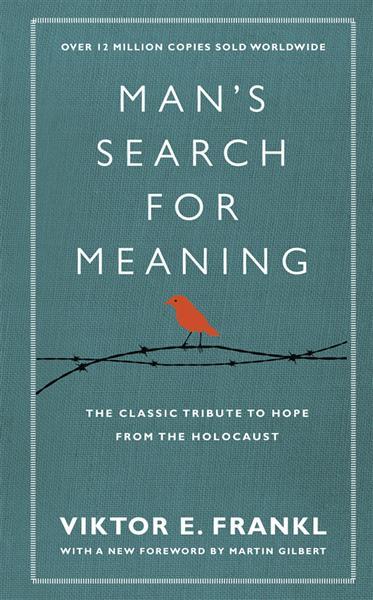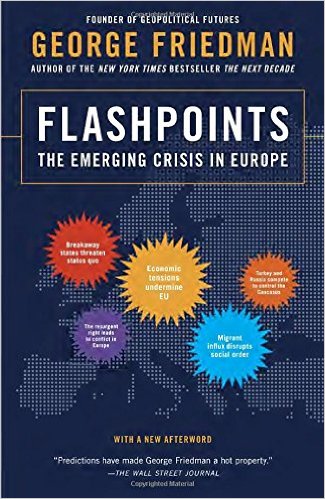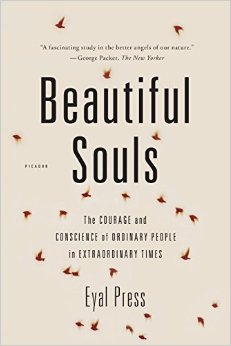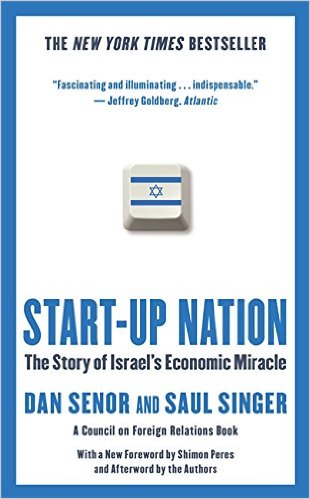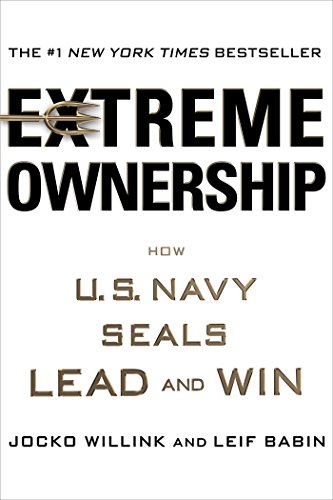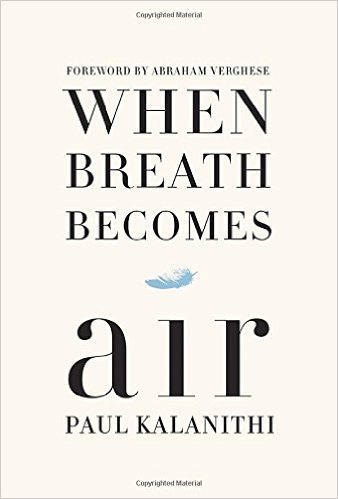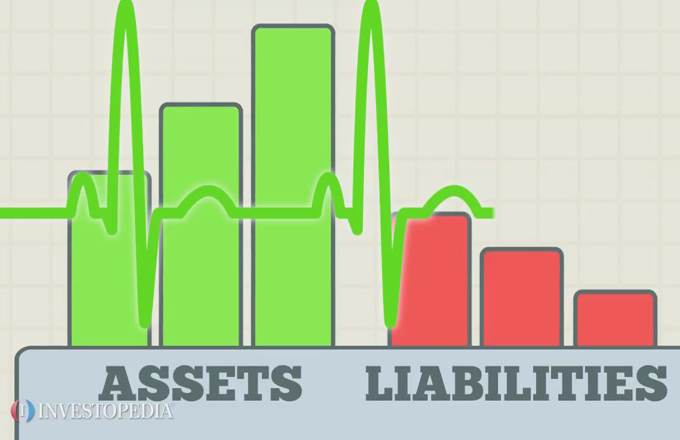It's becoming clear as we move towards the end of 2016 that my target of reading 52 books this year is not going to happen. Not going to give any excuses for not being able to do so, it is just as it is. As usual, I'm going to list down all the books that I've read, then I'm going to recommend a few good ones that forms a deep impression after reading.
Here's the list of all38 40 (updated 28th Dec 2016) books that I've read this year:
Alibaba: The house that Jack Ma built - Duncan Clark
The new sell and sell short - Alexander Elder
Living with a SEAL - Jesse Itzler
When breath becomes air - Paul Kalanithi
Continuum concept - Jean Liedloff
Asian Godfathers - Joe Studwell
Pregnancy: for the first time moms - Darrell Spice
Hard truths to keep Singapore going - Lee Kuan Yew
Extreme ownership - Jocko Willink & Leif Babin
Choose yourself - James Altucher
Gorilla mindset - Mike Cernovich
Beautiful souls - Eyal Press
Start-up nation - Dan Senor/Saul Singer
Concierge confidential - Michael Fazio
What money can't buy - Michael Sandel
It's only money - Cara MacMillan
Real Food / Fake Food - Larry Olmsted
Be financially free - Morten Strange
Flashpoints - George Friedman
The monk who sold his Ferrari - Robin Sharma
Left behind 01 - Tim Lahaye, Jerry Jenkins
Dietland - Sarai Walker
The money culture - Michael Lewis
Absolute beginner's guide to pregnancy - John Adams, Marta Justak
The Happiness Equation - Neil Pasricha
The Infinite Sea - Rick Yancey
Forever Free - Joe Halderman
The art of Procrastination - John Perry
Forever Peace -Joe Halderman
The Forever War - Joe Halderman
Fahrenheit 451 - Ray Bradbury
Bartleby The Scrivener - Herman Melville
Man's search for meaning - Viktor Frankl
Do androids dream of electric sheep? - Philip K. Dick
Portfolios of the poor - Daryl Collins et al
Gang leader for a day - Sudhir Venkatesh
The ultimate success secret - Daniel S. Kennedy
The education of millionaires - Michael Ellsberg
Way of the peaceful warrior - Dan Millman
Money: Master the game - Tony Robbins
Here's the list of all
Alibaba: The house that Jack Ma built - Duncan Clark
The new sell and sell short - Alexander Elder
Living with a SEAL - Jesse Itzler
When breath becomes air - Paul Kalanithi
Continuum concept - Jean Liedloff
Asian Godfathers - Joe Studwell
Pregnancy: for the first time moms - Darrell Spice
Hard truths to keep Singapore going - Lee Kuan Yew
Extreme ownership - Jocko Willink & Leif Babin
Choose yourself - James Altucher
Gorilla mindset - Mike Cernovich
Beautiful souls - Eyal Press
Start-up nation - Dan Senor/Saul Singer
Concierge confidential - Michael Fazio
What money can't buy - Michael Sandel
It's only money - Cara MacMillan
Real Food / Fake Food - Larry Olmsted
Be financially free - Morten Strange
Flashpoints - George Friedman
The monk who sold his Ferrari - Robin Sharma
Left behind 01 - Tim Lahaye, Jerry Jenkins
Dietland - Sarai Walker
The money culture - Michael Lewis
Absolute beginner's guide to pregnancy - John Adams, Marta Justak
The Happiness Equation - Neil Pasricha
The Infinite Sea - Rick Yancey
Forever Free - Joe Halderman
The art of Procrastination - John Perry
Forever Peace -Joe Halderman
The Forever War - Joe Halderman
Fahrenheit 451 - Ray Bradbury
Bartleby The Scrivener - Herman Melville
Man's search for meaning - Viktor Frankl
Do androids dream of electric sheep? - Philip K. Dick
Portfolios of the poor - Daryl Collins et al
Gang leader for a day - Sudhir Venkatesh
The ultimate success secret - Daniel S. Kennedy
The education of millionaires - Michael Ellsberg
Way of the peaceful warrior - Dan Millman
Money: Master the game - Tony Robbins
I can probably squeeze one book book or two before the year is up, but that is pretty much it. Not in any order of preference, here's the shortlist of 6 books that I think are crucial in my personal development:
Portfolios of the poor - Daryl Collins et al
Man's search for meaning - Viktor Frankl
Flashpoints - George Friedman
Beautiful Souls - Eyal Press
Start-up nation - Dan Senor/Saul Singer
Extreme ownership - Jocko Willink/Leif Babin
When breath becomes air - Paul Kalanithi
1. Portfolios of the poor is so good that I can't help but post some sort of reflections while I'm still half way through the book. You can read about my post here. It talks about the financial statements (balance sheet and cash flow) of those who are living wit 2 USD per month or below. No other books I've read talks about the portfolio of the poor and their apparently bad choices in life like this book. I think while it's important to read the majority of the books out there that talks about the portfolio of the rich, it's also important to examine the other side. After all, both cases are extremes and likely we fall in between these two.
2. This book is on so many people's recommended list that you just have to read it to see why. He is a logo-therapist who survived the Holocaust and found that people who suffered needed meaning to understand why they are suffering. Everyone can take suffering, as long as it serves a greater purpose, but nobody wants to take meaningless suffering. It is a very engaging book and is a page turner for me. Beware, because once you started on this, you might just want to quickly get to a quieter corner to devour this book in its entirety as soon as possible.
3. This is a sequel of the book "The next decade" also by the same author, and I thoroughly enjoyed it. This continues from where he left off and focuses more on the EU region and where the conflict areas, known as flashpoints, are in the region. I read this around the Brexit saga and it allows me to understand the different scenarios that might be played out. This is a very interesting book if you're interested in the global political scene that is happening right in front of our very eyes. What will happen to Russia, and to the different countries that made up the EU? How is Turkey going to navigate the scene, being sandwiched between Europe and the middle east?
4. This is a brilliant book recommended by Sillyinvestor. It is collection of stories that portrays real people displaying extraordinary courage by rising above all others to do what they think is right. The author infuses each story with some comments on how difficult it is to go beyond the social rules of the group and act what is right. There is a story of an immigration officer who allowed fleeing Jews into Switzerland, a guy who did the right thing in the conflict between the Croats and Serbs, an israeli soldier who refused to follow orders and a whistle blower in corporate America. It's a very light reading but with a very heavy lesson behind all the stories - when it comes to your turn, would you sacrifice personal gains to do what is morally right?
5. What's wrong with Singapore's education system? How come we don't have a start up culture here, compared to other countries? Israel is one of the most war torn nation surrounded by hostile countries who loved nothing but to see the downfall of their nation, but it still produces a lot of companies that brings so much innovation plus patents that drives technological advances globally. This book explores some of the things that went right for Israel. There's a lot of references to Singapore as a comparison to Israel, so the locals here might find it very relevant. I think any parents or teachers with a stake in educating our next generation will find this book extremely relevant and thought provoking.
6. Two SEAL officers come together to give business consultation to companies by applying what they've learnt in their combat training and experience. I thought it'll be pretty cheesy, but it's surprising relevant. Every chapter they will illustrate some exciting combat situation and how they navigated through all the screw up and potential dangers and emerged victorious. And after that, they will apply this story to one case in their consulting work, followed by a summary of the lesson. One concept of extreme ownership is what I'm trying to practice after reading it. It's about how everything and anything that didn't go according to your plan is your fault. If my student is not motivated, it's my fault. If my student didn't do well, it's my fault. If my student wanted to leave the tuition, it's my fault. It might be a little harsh, but it empowers me and gives me the ability to change my environment, rather than to give that power away. One of the best self help book I've read this year in 2016. Don't take my word for it, go and read and see for yourself.
7. After reading Viktor Frankl's book on Man's search for meaning, this book seems like accompanying book. While Viktor's book is more philosophical and theoretical, Paul's book is much more practical and it feels that the author is showing us how to lead a life full of meaning even though he is suffering. I think there is a great deal of lessons we can learn from him. This book can be read easily and is a page turner, so be prepared to sleep late at night once you've started on this book. Be warned. You might even cry a little at the end of it all.
In 2017, I'm going to have a major change in my status. I'm going to be a father! I wonder if that will derail my target of 52 books a year. Probably so, but we shall see. As it is, I still intend to read, but I wonder if this is just fantasy on my part haha :)




